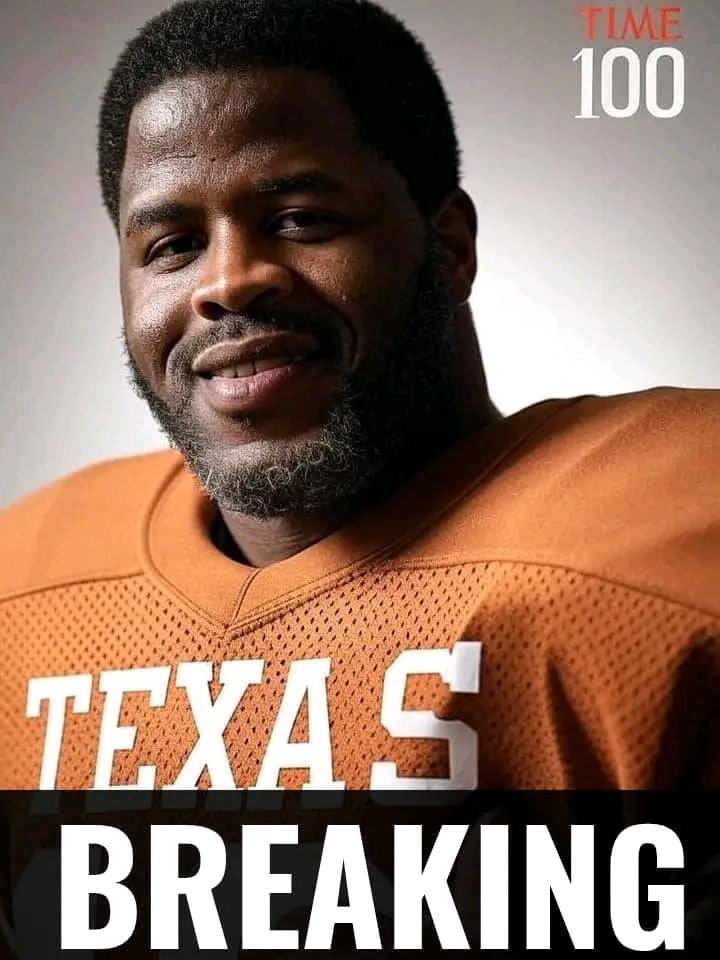
Texas Legend Earl Campbell has been named one of the 100 most influential people in sports by TIME 100 magazine, marking a milestone that cements his reputation and… Full story In Here: –
In a moment that reverberates through the heart of Texas and beyond, football legend Earl Campbell has been named one of the 100 most influential people in sports by TIME 100 magazine. This prestigious recognition cements Campbell’s towering legacy, not only as a dominant force on the gridiron but as a cultural icon whose impact transcends athletics. Known as the “Tyler Rose,” Campbell’s journey from the fields of East Texas to the pinnacle of sports history is a testament to grit, grace, and an unyielding spirit.
HBAgency
Born in Tyler, Texas, in 1955, Earl Christian Campbell grew up in a modest household, one of 11 children raised by a single mother. His early life was shaped by hard work and resilience, qualities that would define his football career. At John Tyler High School, Campbell’s raw talent was undeniable, but it was at the University of Texas where he became a household name. In 1977, he won the Heisman Trophy, becoming the first Longhorn to claim college football’s most coveted award. His punishing running style—combining speed, power, and an almost mythic ability to break tackles—earned him a place in the hearts of fans and the annals of the sport.
HBAgency
Campbell’s professional career with the Houston Oilers (now the Tennessee Titans) further solidified his legend. From 1978 to 1985, he redefined the running back position, earning the NFL MVP award in 1979 and leading the league in rushing yards three consecutive years. His bruising runs, often dragging defenders along for the ride, made him a symbol of unrelenting determination. Yet, it wasn’t just his stats—5,147 yards and 45 touchdowns in his first four seasons—that made Campbell influential. It was the way he played: with a ferocity that inspired teammates and struck fear into opponents. His style wasn’t just about winning games; it was about embodying a spirit of perseverance that resonated far beyond the stadium.
HBAgency
The TIME 100 recognition highlights Campbell’s influence off the field as much as on it. After retiring from the NFL, he faced the physical toll of his punishing career, including chronic pain and mobility challenges. Yet, Campbell turned his struggles into advocacy, raising awareness about the long-term effects of football injuries and championing better care for retired players. His openness about vulnerability in a sport that glorifies toughness has sparked conversations about player safety and mental health, influencing the NFL’s approach to post-career support.
Beyond health advocacy, Campbell’s impact is deeply rooted in his community. In Tyler, he’s more than a football hero; he’s a beacon of hope. Through his Earl Campbell Meat Products company, he’s created jobs and given back to the region that raised him. His philanthropy, including scholarships and youth programs, has empowered countless young people, particularly in underserved communities. Campbell’s story—of rising from poverty to greatness—continues to inspire, showing that influence isn’t just about fame but about uplifting others.
Campbell’s cultural significance also lies in his role as a trailblazer. As an African American athlete in the 1970s and 1980s, he broke barriers in a sport and a region where racial divides were still palpable. His success challenged stereotypes and opened doors for future generations of Black athletes. His grace under pressure, both on and off the field, made him a role model for resilience in the face of adversity.
This TIME 100 honor places Campbell alongside global sports icons whose influence shapes how we view athleticism, leadership, and legacy. His inclusion is a nod to his enduring relevance—decades after his last carry, Campbell’s name still evokes awe. From the Longhorns’ burnt orange to the Oilers’ Columbia blue, his journey is woven into the fabric of American sports.
As Texas celebrates one of its own, Campbell remains humble, often deflecting praise to his teammates, coaches, and family. Yet, the world sees what he may not: a man whose influence stretches far beyond the goal line. Congratulations, Earl Campbell, for a legacy that continues to run through the heart of sports history.





